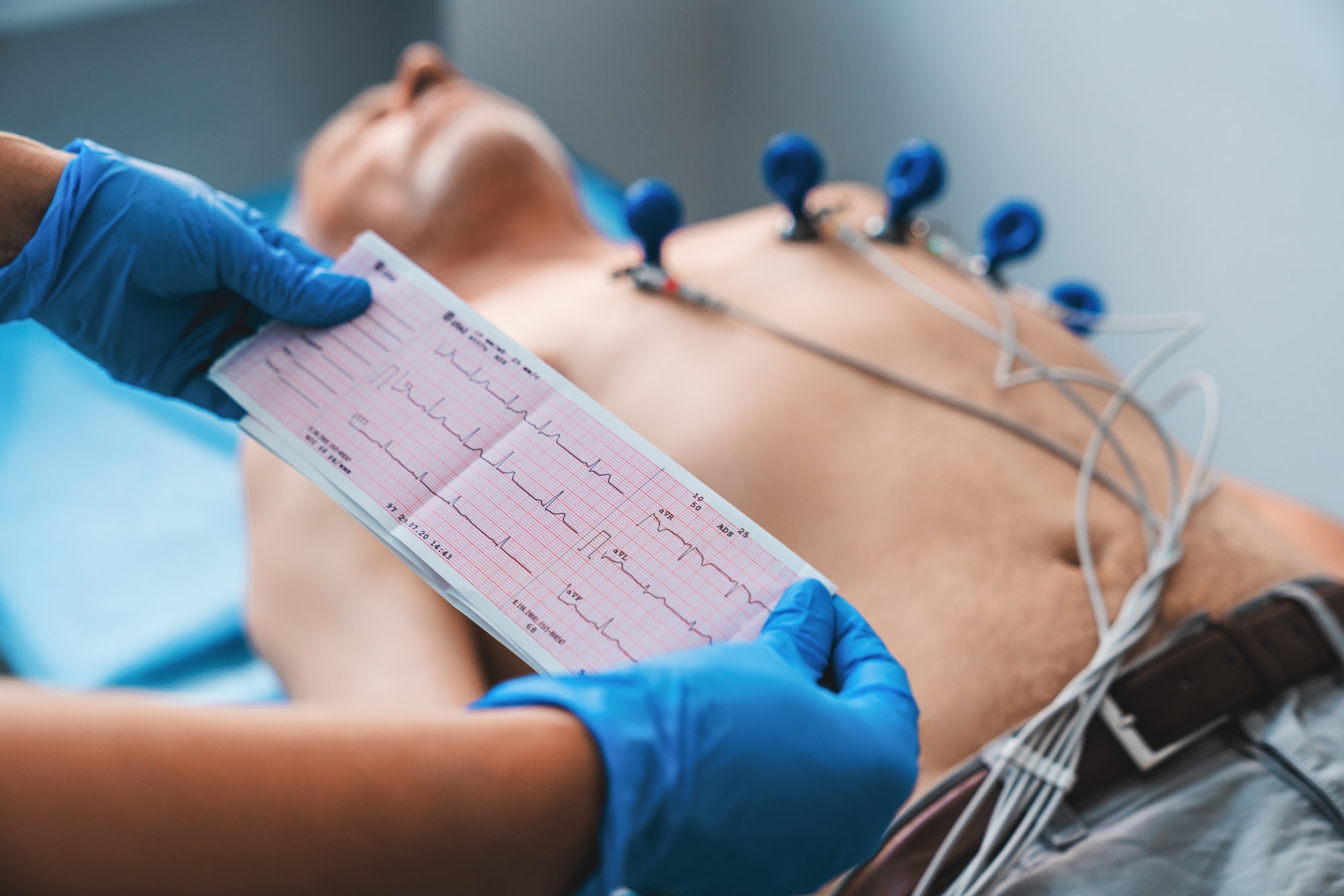ECG

Indications
The Electrocardiogram (ECG) is a common test recommended for several reasons. If you’re having any of the following experiences, your doctor might or might have advised an ECG:
- Heart Symptoms: If you're experiencing symptoms such as chest pain, shortness of breath, or heart palpitations (unusual sensations of your heart beating), an ECG can help identify the cause.
- Suspected Heart Disease: If your doctor suspects that you might have heart disease due to your symptoms or medical history, an ECG can provide essential information.
- Signs of Myocardial Ischemia: Symptoms such as chest pain, shortness of breath, or sweating excessively (diaphoresis) might indicate a condition called myocardial ischemia, where the heart muscle isn't getting enough oxygen. An ECG can help diagnose this condition.
- Possible Arrhythmias: If you're experiencing palpitations or irregular heartbeats, an ECG can help your doctor determine if you have an arrhythmia and what type it might be.
- Cardiovascular Syncope: If you're having brief losses of consciousness, an ECG can help your doctor determine if a heart problem is the cause.
- Hypertension Investigation: If you have high blood pressure (hypertension), an ECG might be done to check for any heart damage or complications.
- Cardiac Murmurs or Seizures: If your doctor detects unusual heart sounds (cardiac murmurs) during a physical exam, or if you have had seizures, an ECG might be used to investigate further.
What is an ECG?
An Electrocardiogram (ECG) may also be suggested for individuals who may be at a higher risk of heart disease due to certain risk factors. These include a family history of heart disease, smoking habits, being overweight, having diabetes, high cholesterol or high blood pressure.
An ECG is a medical test that helps identify abnormalities in the heart by capturing the electrical signals generated as your heart beats. The machine that captures these signals is called an electrocardiograph. This tool records the electrical activity, generating a visual output – either on a screen or paper – which is then analysed by a healthcare professional.
ECGs of a healthy heart typically show a characteristic pattern. Any deviation from this pattern, resulting from irregular heart rhythms or heart muscle damage, can indicate potential heart problems.
What can I expect during the test?
- The test usually takes up to 15 minutes.
- You’ll need to undress from the waist up and lie down on a bed.
- The technician will prepare your skin by gently cleaning it with some rough paper and an alcohol wipe.
- Twelve electrodes are attached to your skin, which are then connected to the ECG machine.
- You’ll be asked to stay still and breathe normally during the test.
- Two or three readings will typically be taken.
What are the risks of the test?
- The process of skin preparation and sterilisation may cause a slight stinging sensation and can leave behind red patches. These patches are quite normal and usually fade away within a couple of days.
- In rare cases, some patients with extra sensitive skin may develop small blisters due to the gel used on the electrodes. However, these blisters typically heal swiftly.
Preparation
(This test will take up to 15-30 minutes)
Preparing for an ECG Test:
Shaving if Necessary: For males, there may be a need to shave some hair on your chest. This is to ensure that the electrodes, which are used to capture the electrical activity of your heart, stick properly to your skin.
Appropriate Clothing: For females, it is recommended to wear two-piece clothing. The top part of your clothing will need to be removed easily to allow for the placement of electrodes. This is why a two-piece outfit can be more convenient and comfortable for this particular test.
No other preparation is required.
Request an Appointment with Heartscope.
Call us or submit a request form to make an online booking.

